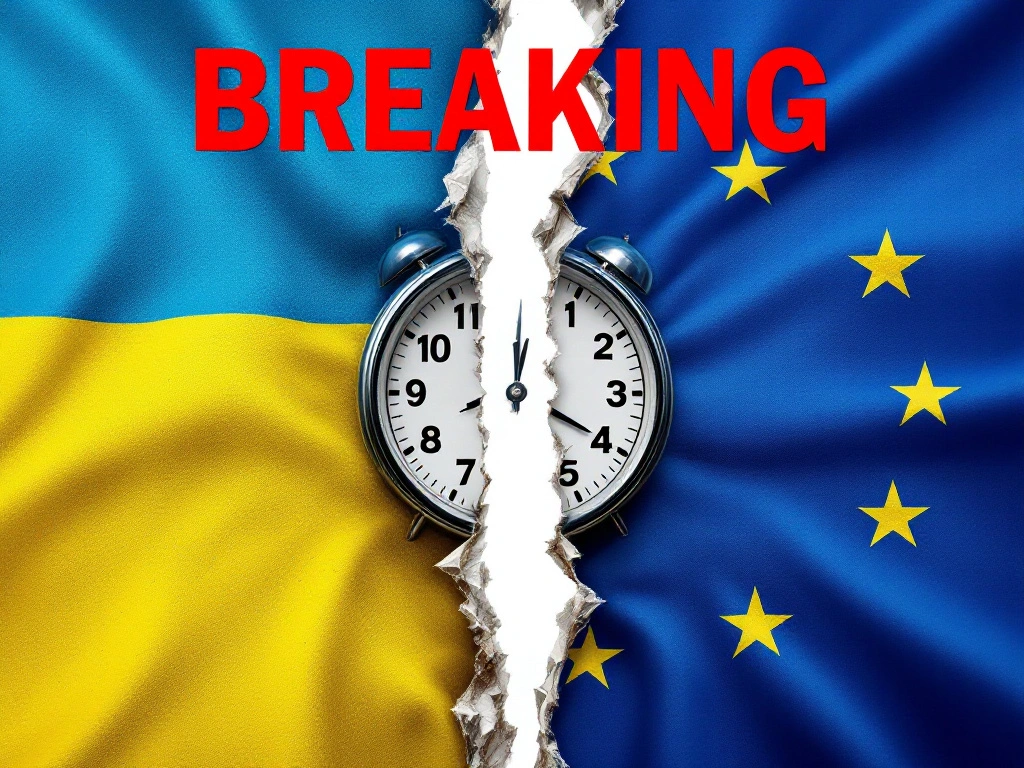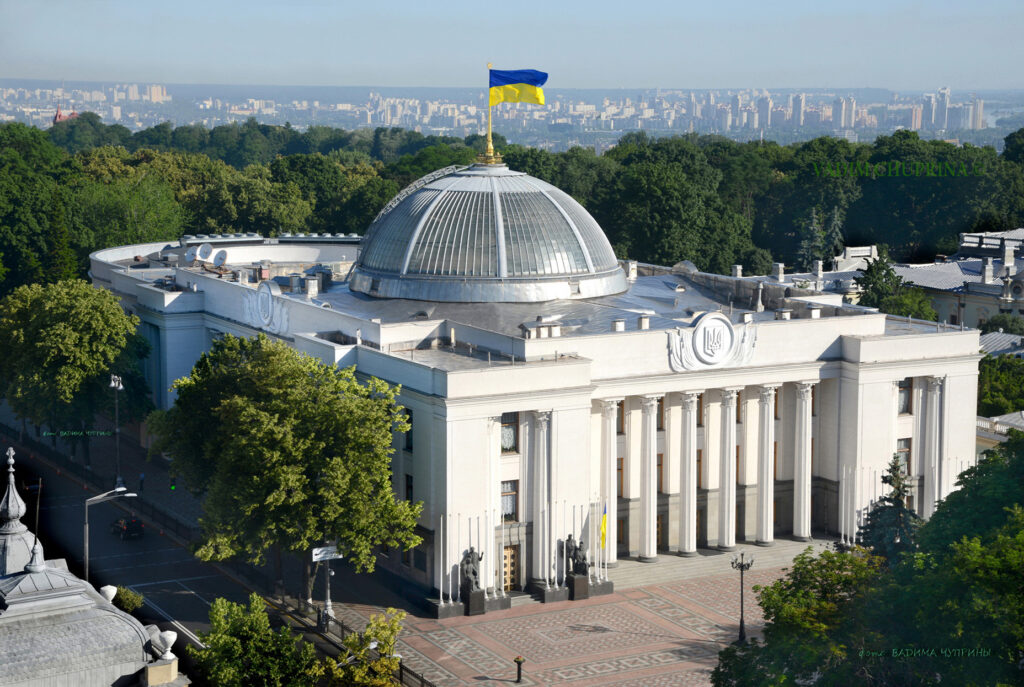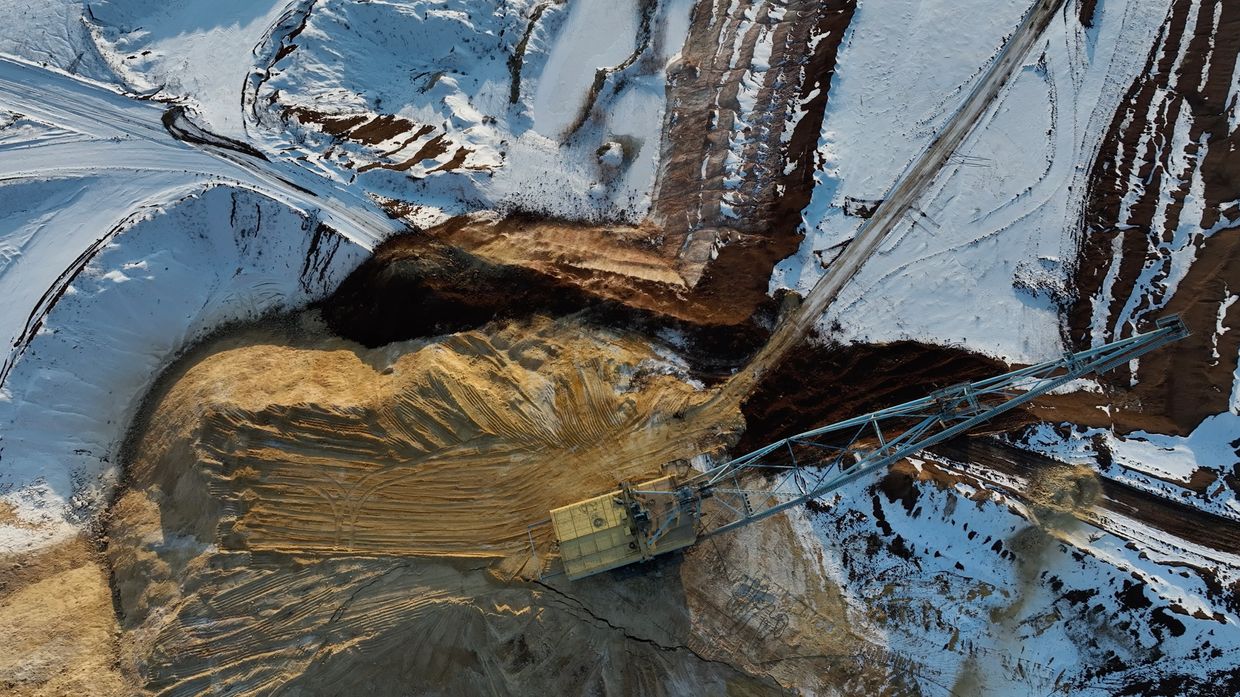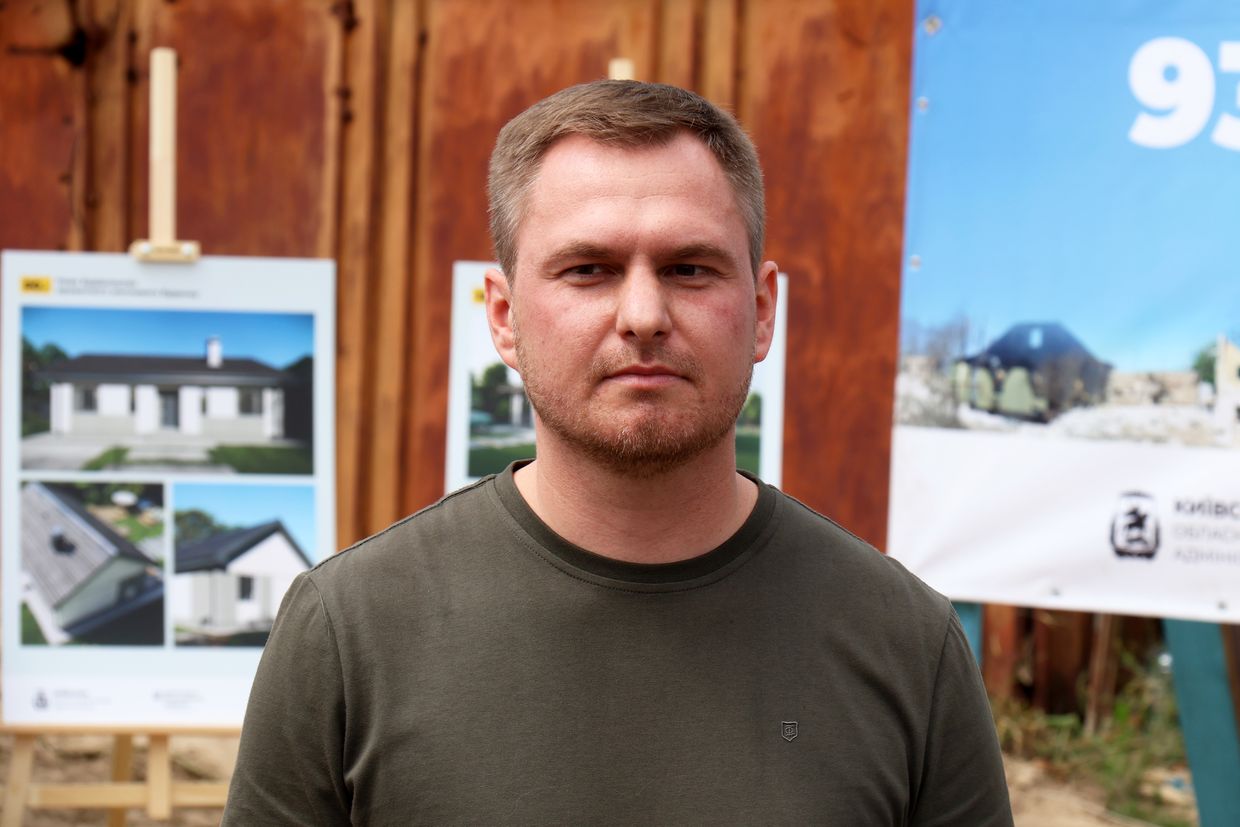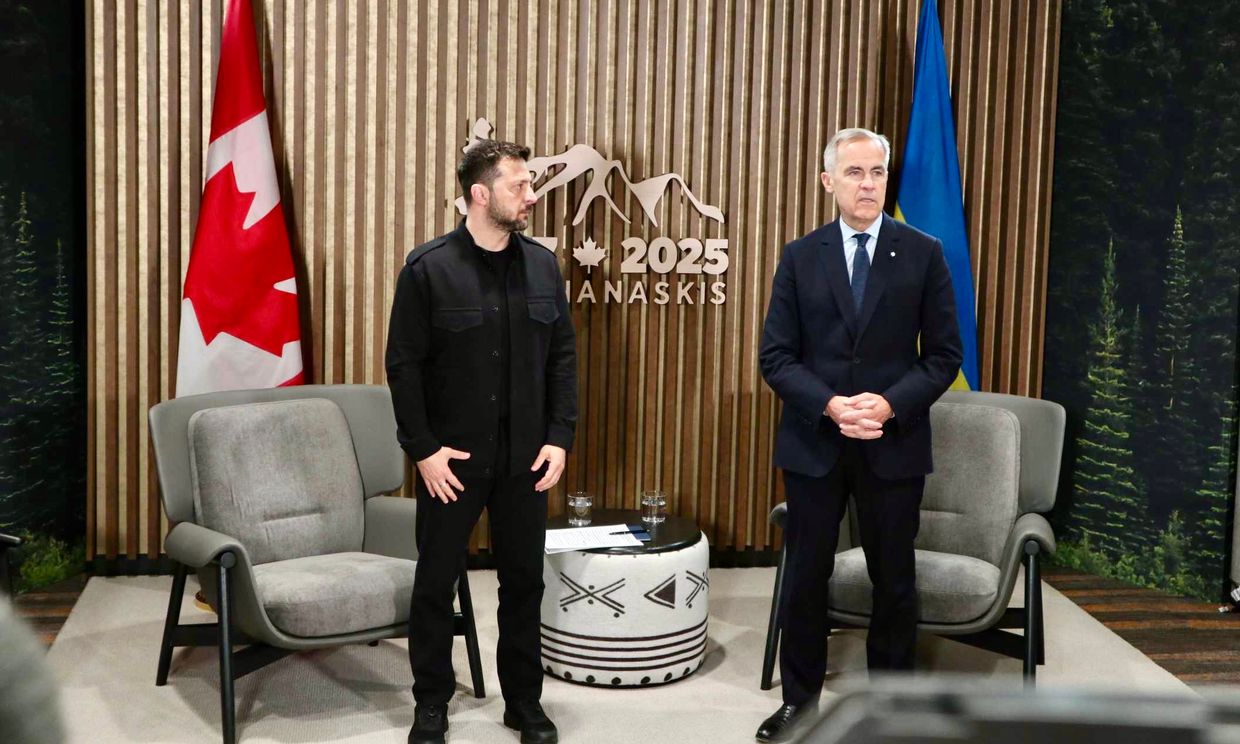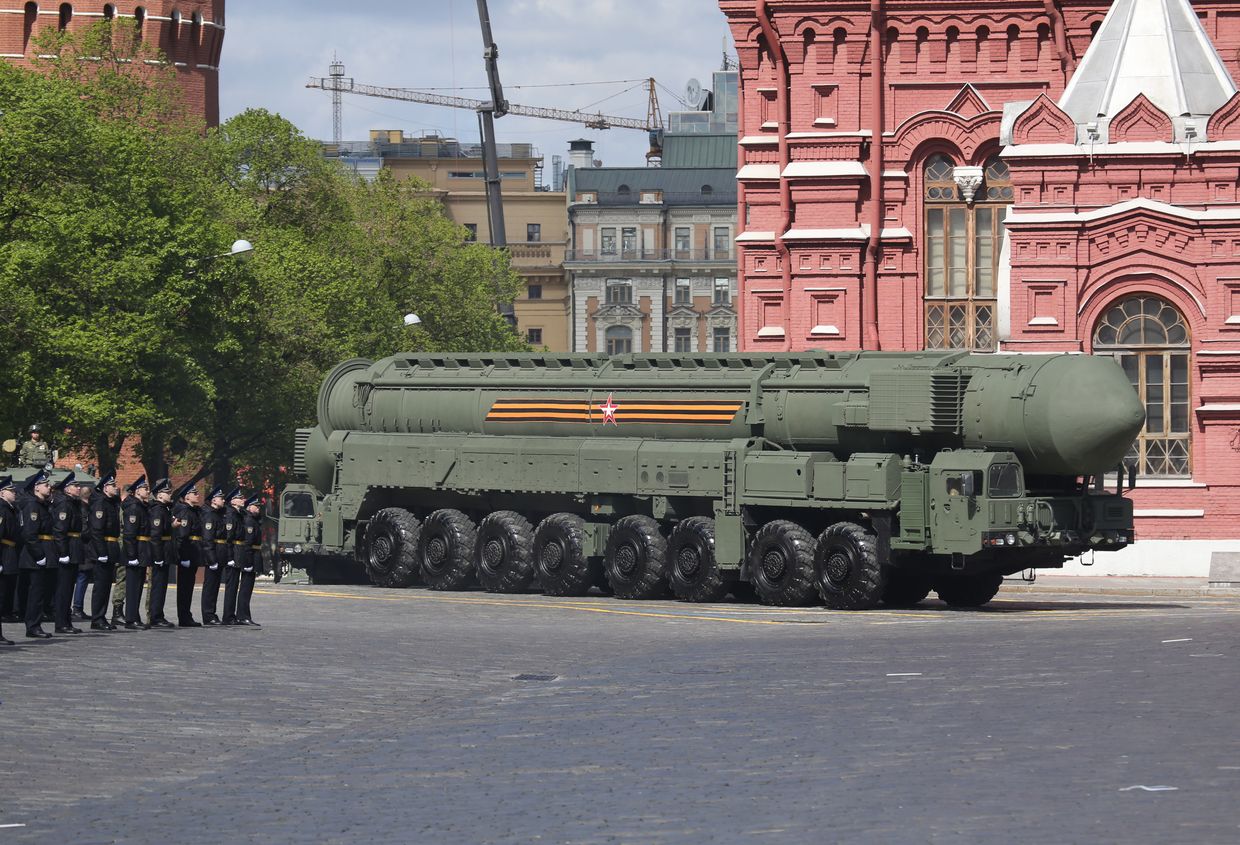Ukraine asks West to fund half its government as defense spending hits record 27% of GDP
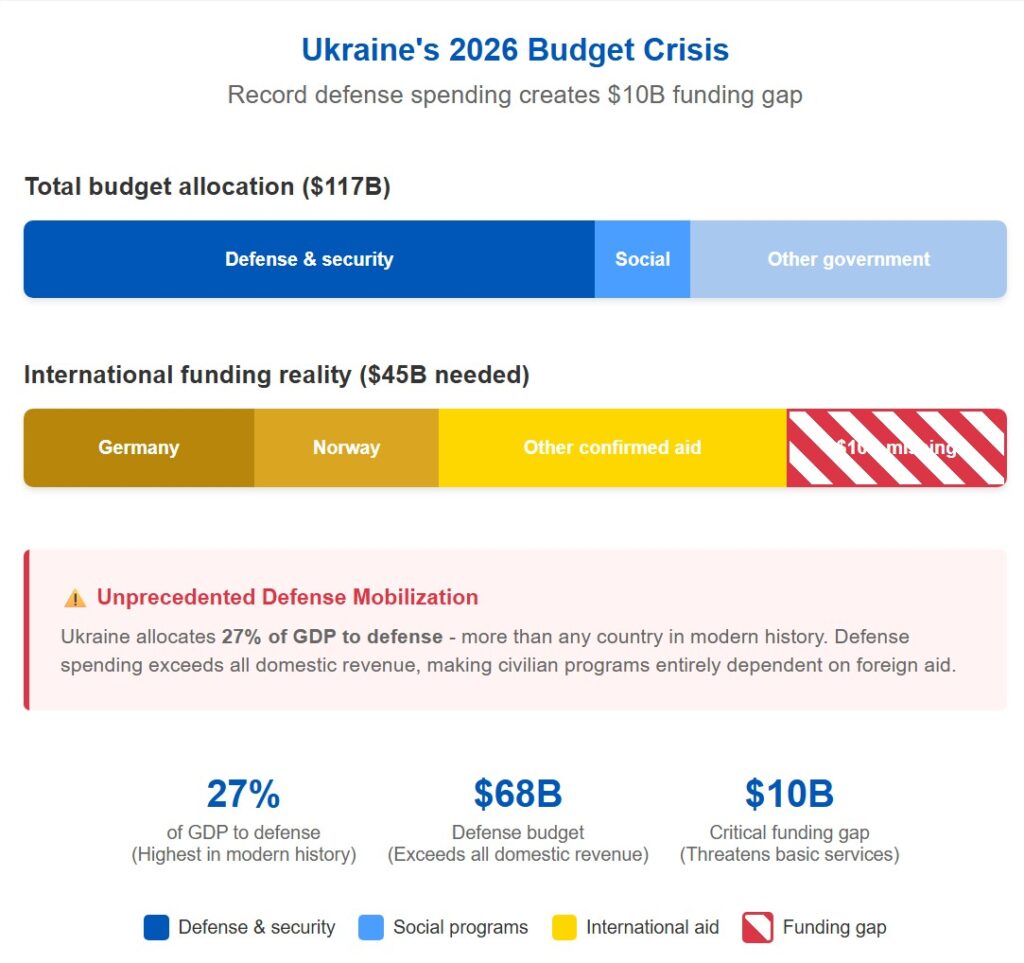
No country in modern history has devoted 27% of its entire economy to defense. Ukraine’s 2026 budget crosses that threshold while facing a $10 billion funding shortfall, forcing Western taxpayers to fund basic government operations—from healthcare to pensions—because nearly all domestic revenue now flows to the military.
Ukraine’s government submitted this wartime budget to Parliament on 15 September, creating the most acute test yet of Western resolve to sustain Ukraine’s total war footing.
The budget assumes fighting continues through 2026, creating unprecedented demands on Ukrainian society and international partners.
With defense spending consuming nearly all domestic tax revenue, Ukraine’s survival depends entirely on foreign generosity for civilian functions.
Record defense mobilization exposes Western aid limits
The proposed 4.8 trillion hryvnia ($117 billion) budget allocates 2.8 trillion hryvnias ($68 billion) to defense and security—more than the entire domestic revenue base.
Finance Minister Serhiy Marchenko projects a $45 billion deficit, with only $35 billion confirmed from international partners.
Parliamentary Finance Committee Chairman Danylo Hetmantsev told RBC-Ukraine the gap represents “very big money, a very big and fundamental problem.” He explained that the National Bank and Cabinet base their calculations on assumptions of “slower return of the economy to normal operating conditions and preservation of high security risks.”
This funding crisis continues a multi-year pattern of Ukrainian budget shortfalls. Euromaidan Press reported last week that Ukraine faced a $7 billion defense gap despite surplus civilian aid, while the IMF discovered that Ukraine needs $20 billion more through 2027 than initially estimated.
However, Finance Minister Marchenko said on 13 September that the immediate 2026 gap is 16 billion euros ($17.4 billion), showing how estimates continue evolving as negotiations progress.
Defense spending has escalated from previous levels—as Euromaidan Press pointed out, Ukraine already dedicates more of its economy to defense than any other country in modern history.
Social spending tensions emerge
Despite the funding crisis, the budget proposes major social spending increases: 50% teacher salary raises, expanded healthcare coverage, and higher pensions.
But Hetmantsev sharply criticized government trends toward “giving away money that doesn’t exist.”
He specifically targeted programs like 100,000 hryvnia ($2,430) grants for creative industry entrepreneurs, arguing such spending “looks wild” during wartime. “We shouldn’t pretend we’re at peace,” Hetmantsev said, calling for better prioritization of limited resources.
The tension reflects a fundamental challenge: maintaining civilian morale through continued social services while dedicating nearly all domestic resources to the military. Previous Euromaidan Press analysis showed Ukraine now spends more servicing war debt than supporting elderly and vulnerable citizens.
The proposed social spending increases to 467.1 billion hryvnias ($11.3 billion), including expanded child benefits, veteran support programs, and teacher salary increases.
Dependence on Western generosity deepens
Ukraine’s 2026 budget reveals total reliance on foreign financing for non-military functions. Negotiations continue for nearly half of the 2.08 trillion hryvnias ($50.5 billion) needed externally.
Germany has committed 9 billion euros ($10.6 billion) annually, while Norway has promised 8.5 billion dollars. But gaps remain large enough to threaten basic government operations.
The dependency creates structural vulnerabilities as Western political pressures mount. Aid restrictions compound the problem.
While partners provide substantial civilian assistance, military funding remains limited, forcing Ukraine to cover defense costs through domestic taxation alone.
This creates a structural mismatch where civilian programs receive foreign support while military needs must rely entirely on Ukraine’s limited tax base.
War duration planning creates negotiating pressure
The budget includes a new 200 billion hryvnia ($4.9 billion) “defense reserve” allowing rapid redistribution between military branches based on battlefield needs. This reflects government assumptions about continued fighting requiring flexible resource allocation.
The budget framework assumes sustained “high security risks” and only gradual economic normalization—scenarios requiring years of continued international support.
This contrasts with earlier hopes expressed by some officials about potential war resolution.
Previous Ukrainian defense budgets have consistently proven insufficient, requiring multiple revisions. The 2024 defense budget increased by $12 billion mid-year.
Parliamentary timeline intensifies funding negotiations
Parliament will not review the budget until late November, with the first reading by 20 October and the final passage by 20 November. This timeline puts immediate pressure on international negotiations to close the $10 billion gap.
Hetmantsev emphasized that despite funding uncertainties, Ukraine has never delayed pensions or social payments during the war.
Maintaining this record requires securing the funds that are missing during ongoing negotiations with the IMF and European partners.
The 2026 budget represents Ukraine’s starkest financial reality yet: a country dedicating over a quarter of its entire economy to defense while completely dependent on foreign goodwill for basic government functions.
Whether Western partners can sustain this unprecedented level of support will determine the viability of Ukraine’s war effort and its state.
